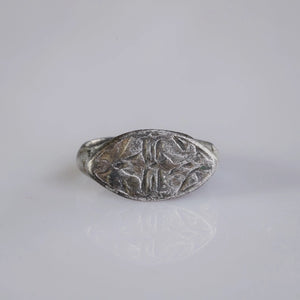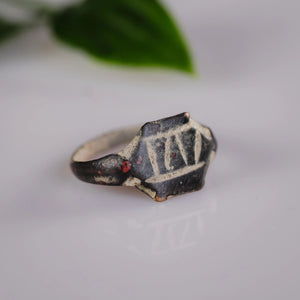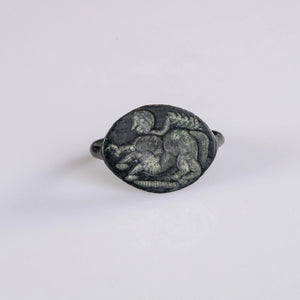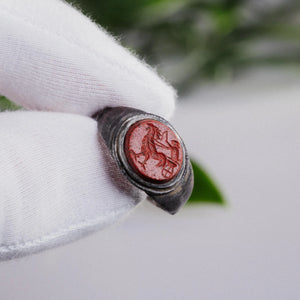Interesting facts
Introduction
When we think of fairy tale castles, Neuschwanstein Castle often comes to mind as one of the most enchanting and picturesque examples in the world. Nestled in the heart of Bavaria, Germany, this castle is famously associated with King Ludwig II and has inspired countless visitors with its stunning architecture and romantic setting. If you're planning to visit Neuschwanstein Castle, a question likely arises: Which German city is closest to this iconic landmark? Understanding its geographical context not only helps in planning your trip but also enriches the experience of discovering its natural and cultural surroundings.
The Proximity of Füssen to Neuschwanstein Castle
Neuschwanstein Castle sits near the quaint village of Hohenschwangau, which itself has a rich historical connection to the castle. Just a short distance away lies the town of Füssen, located in the Allgäu region of Bavaria. Füssen is the closest larger town to Neuschwanstein and serves as the main gateway for visitors heading to the castle.

For anyone curious about the finest route to the castle, or looking for a place to stay nearby, Füssen provides practical access without sacrificing the charm and tranquility of a smaller Bavarian town. The Lech River, which flows gracefully through the valley nearby, further enhances the region’s natural beauty, inviting travelers to linger and soak in the scenery.
Historical and Cultural Richness of Füssen
Historically, Füssen’s roots go back to Roman times and it has maintained its cultural legacy through well-preserved architecture and a vibrant local arts scene. This makes it not only a convenient but also an enriching point of departure when visiting Neuschwanstein Castle. Visitors coming through Füssen often find themselves captivated by the mixture of history, culture, and nature before even reaching the castle itself.
The Scenic Journey to Neuschwanstein Castle
An interesting detail about the area is how the landscape around the castle has remained relatively untouched, allowing for peaceful walks alongside the lakes and through the Alpine foothills. The journey from Füssen to Neuschwanstein Castle takes roughly 10 minutes by car or a short bus ride, offering glimpses of pristine waters and lush greenery. This scenic route is a paradise for nature photography enthusiasts, and one picture-perfect spot will make you feel as though you're walking through a real-life postcard.
If you prefer a slower pace, walking or cycling between Füssen and the castle area provides unique perspectives on local life, including traditional Bavarian architecture and small eateries serving regional delicacies. The proximity makes it easy to combine a cultural city visit with a natural excursion in one trip.
Exploring the Allgäu Region
For those exploring further, the Allgäu region itself is a verdant wonderland in southern Bavaria, renowned for its rolling hills, dairy farms, and alpine vistas. Füssen’s location within this landscape gives visitors a chance to experience authentic rural charm alongside their fairy-tale castle tour. Visitors often remark how the combination of the castle's grandeur with the peaceful natural setting enhances the overall experience. The shimmering waters of Alpsee and Schwansee reflect the towers of Neuschwanstein on clear days, creating postcard-perfect views that inspire photographers and dreamers alike.
Planning your visit with an understanding of the regional geography will help you appreciate not only the castle's fairy-tale aspects but also its real-life connection to the land and communities around it. Conveniently, Füssen is well-connected to larger Bavarian cities such as Munich, making it accessible while still feeling distant enough to preserve a sense of escape.
Whether you arrive by train or car, the approach to Neuschwanstein often involves a gentle climb from Hohenschwangau, where parking and visitor facilities are located. From here, it's a short ascent by foot, shuttle, or horse-drawn carriage to the castle's entrance, offering ever-expanding views of the landscape and historic buildings down below.
Füssen's Vibrant Local Culture
This proximity of the castle to Füssen, as the closest notable city, is crucial for practical reasons: accommodations, dining, and services are centered here, providing comfort for the traveler before or after a visit to the castle. The town holds small museums and artisan shops that allow a deeper dive into local history and craftsmanship.
Overall, recognizing Füssen as the closest German city to Neuschwanstein Castle gives prospective visitors a clear starting point and an enriching context for exploring one of the world’s most beloved landmarks. It is a place where history, nature, and fairy tales intertwine beautifully.
Planning Your Visit
To bring this closer to a tangible example, consider planning a day that begins in Füssen. Start with a leisurely breakfast overlooking the Lech River, then explore the pedestrian-friendly town center. Afterward, take a short drive or bike ride along the lakes before heading up to Neuschwanstein Castle. The balance of urban amenities and natural beauty defines the experience of this region.
Interestingly, while Füssen is the nearest city, the castle’s location near the tiny village of Hohenschwangau adds a layer of intimacy seldom found around major tourist destinations. Hohenschwangau itself houses a less famous but historically significant castle, once home to Ludwig II during his youth.
The Ever-Changing Beauty of the Region
This layered history tells a story not just about architecture but about the man behind Neuschwanstein and the cultural heritage embedded in the region. Thus, visitors can enrich their journey by exploring both settlements and the natural surroundings.
During different seasons, this area transforms dramatically—from lush green summers enlivened by wildflowers and lake activities to snowy winters where the castle looks like an alpine dreamscape straight from a holiday postcard. Füssen adapts to the seasons with local festivals and markets, enhancing the visitor's experience year-round. Imagine visiting in spring when the surrounding meadows burst with colorful blooms, and the warming sun shines on the castle’s white walls, making it gleam against the backdrop of newly snow-capped peaks. Or picture a crisp autumn day when the forest around Füssen dons shades of gold and crimson, inviting peaceful hikes and quiet reflection by the lakes.
Winter, however, paints the region in serene whites and soft blues. Neuschwanstein Castle under a blanket of snow looks almost otherworldly, as if lifted straight from a storyteller’s dream. Füssen’s Christmas markets fill the town square with lights, scents of mulled wine, and laughter, making the cold season feel warm and festive.
Hiking and Family Activities in Füssen
Moreover, the castle’s allure extends beyond its walls and towers. The hiking trails around Neuschwanstein and Hohenschwangau provide expanding views of the Alps, the region’s lakes, and the quaint villages dotting the landscape. These paths invite a deeper connection to the environment that has shaped the castle’s legendary atmosphere.
For families, Füssen offers plenty of opportunities to combine education and fun. Local museums often feature exhibits on King Ludwig II, telling the tale of his fascination with fairy tales and music, which played a key role in the conception of Neuschwanstein. Additionally, interactive displays and guided tours cater to younger visitors, making the history accessible and engaging.
Food lovers will also find Füssen a delight. Traditional Bavarian cuisine features prominently in the town’s eateries, with hearty dishes like schnitzel, roast pork, and freshly baked pretzels. Many restaurants and cafes offer seating with views of the surrounding mountains and river, creating a meal experience closely tied to the local ambiance.
Transportation and Nearby Attractions
Transportation-wise, Füssen’s position makes it easy to plan day trips beyond Neuschwanstein. Nearby attractions include the town of Schwangau with its own historic castles, and the scenic routes leading toward the Austrian border. From Füssen, visitors can also venture into the heart of the Bavarian Alps or explore nearby thermal spas and wellness centers, perfect for relaxing after a day of sightseeing.
The close relationship between Füssen and Neuschwanstein Castle is more than geographical—it reflects the intertwining of culture, nature, and history that defines the area. Visitors who take this into account often find their trip not just a visit but a journey into a storybook setting made real by centuries of human passion and craftsmanship.
The Charm of Füssen
In practical terms, knowing that Füssen is the closest city helps with planning accommodations and transportation. Whether you choose a boutique hotel in the town center or a cozy guesthouse along the river, staying in Füssen allows you to enjoy the peace of a smaller town while having quick access to one of Germany’s top attractions.
In summary, when asked which German city is closest to Neuschwanstein Castle, the answer is clear: Füssen. But this proximity goes beyond mere distance. Füssen acts as the welcoming heart of the region, inviting visitors to step into a world where fairy tales come alive amid stunning natural beauty.
One might wonder after visiting such a monumental castle, is there a German tradition or superstition tied to creating such masterpieces in remote idyllic locations? Interestingly, there is a Bavarian saying: "The higher the castle, the closer to the stars," symbolizing not only physical elevation but the aspiration to achieve the extraordinary. Exploring this cultural nuance can add depth to your visit.
Neuschwanstein Castle, a dazzling jewel above the village of Hohenschwangau, draws countless visitors every year who find their natural starting point in Füssen, the closest city that opens the door to all the wonders this part of Bavaria holds. Together, they form a compelling destination—a place where history, landscape, and legend come together to create a memory that lingers long after the visit ends.
Is there a German tradition or superstition tied to creating such masterpieces in remote idyllic locations?
Interestingly, there is a Bavarian saying: "The higher the castle, the closer to the stars," symbolizing not only physical elevation but the aspiration to achieve the extraordinary. Exploring this cultural nuance can add depth to your visit.
Wear a Piece of Antiquity Today
Discover the RingWhat makes Füssen the best base for visiting Neuschwanstein Castle?
Füssen is the closest city to Neuschwanstein Castle, offering convenient access, accommodation, dining options, and a rich cultural backdrop for visitors.
Can you visit Neuschwanstein Castle all year round?
Yes, Neuschwanstein Castle is open year-round, with each season offering a unique ambiance, though hours may vary depending on the time of year.
Where can I buy historical artifacts related to Neuschwanstein Castle?
While direct artifacts related to Neuschwanstein are rare, you can explore historical treasures like the 'Auriga' Roman Silver Ring at Aurora Antiqua. Discover more here.




